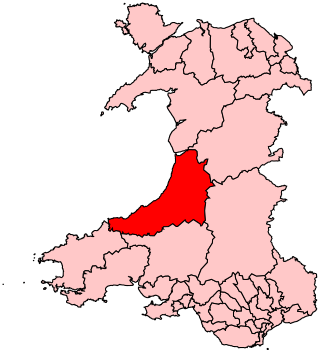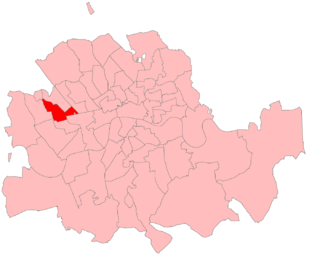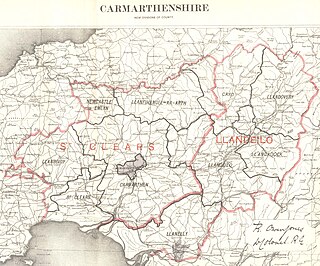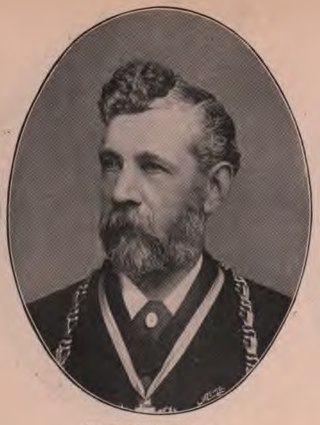
Henry Charles Fulford was a British Liberal Party politician whose election to Parliament was overturned in the courts by an election petition.

Henry Charles Fulford was a British Liberal Party politician whose election to Parliament was overturned in the courts by an election petition.
Fulford was Liberal candidate for the Birmingham East division at the 1892 General Election. As with all other Birmingham seats at this time, Birmingham East was a safe Unionist seat. Any prospect Fulford may have had of winning the seat received a setback when an Independent Liberal candidate emerged to split the Liberal vote. He was defeated by over 2,000 votes.
He was then Liberal candidate for the Lichfield division of Staffordshire at the 1895 General Election. This was a Liberal constituency that the party had lost in 1892 by just 11 votes. Fulford was able to win the seat back by a margin of just 44 votes. However, this election was voided following the lodging of a petition on 19 December 1895. [1] About nine months before the election, after Fulford's selection as candidate, a public meeting was held at which he spoke. The meeting ended with a resolution to secure the return of Fulford to Parliament. Although Fulford had yet to be formally adopted by the local Liberal association, this meeting was deemed to have commenced his election campaign. [2] Fulford's return of election expenses had not taken this meeting into consideration.
Fulford did not contest the ensuing 1896 Lichfield by-election but the Liberal Party comfortably won. He did not stand for Parliament again. [1]
| Party | Candidate | Votes | % | ±% | |
|---|---|---|---|---|---|
| Conservative | Henry Matthews | 5,041 | 61.7 | ||
| Liberal | Henry Fulford | 2,832 | 34.7 | ||
| Independent Liberal | Daniel Shilton Collin | 296 | 3.6 | ||
| Majority | 2,209 | 27.0 | |||
| Turnout | 10,404 | 78.5 | |||
| Conservative hold | Swing | ||||
| Party | Candidate | Votes | % | ±% | |
|---|---|---|---|---|---|
| Liberal | Henry Fulford | 3,902 | 50.3 | +0.4 | |
| Liberal Unionist | Leonard Darwin | 3,858 | 49.7 | -0.4 | |
| Majority | 44 | 0.6 | 0.8 | ||
| Turnout | 85.1 | +3.7 | |||
| Liberal gain from Liberal Unionist | Swing | +0.4 | |||
The Liberal Unionist Party was a British political party that was formed in 1886 by a faction that broke away from the Liberal Party. Led by Lord Hartington and Joseph Chamberlain, the party established a political alliance with the Conservative Party in opposition to Irish Home Rule. The two parties formed the ten-year-long coalition Unionist Government 1895–1905 but kept separate political funds and their own party organisations until a complete merger between the Liberal Unionist and the Conservative parties was agreed to in May 1912.

Ceredigion is a parliamentary constituency represented in the House of Commons of the UK Parliament. Created in 1536, the franchise expanded in the late 19th century and on the enfranchisement of women. Its boundaries remained virtually unchanged until 1983. From 1536 until 1885 the area had two seats : a county constituency (Cardiganshire) comprising the rural areas, the other the borough constituency known as the Cardigan District of Boroughs comprising a few separate towns; in 1885 the latter was abolished, its towns and electors incorporated into the former, reduced to one MP. The towns which comprised the Boroughs varied slightly over this long period, but primarily consisted of Cardigan, Aberystwyth, Lampeter and Adpar, the latter now a suburb of Newcastle Emlyn across the Teifi, in Carmarthenshire.

The 2010 United Kingdom general election was held on Thursday 6 May 2010, with 45,597,461 registered voters entitled to vote to elect members to the House of Commons. The election took place in 650 constituencies across the United Kingdom under the first-past-the-post system.

Paddington South was a Parliamentary constituency in London which returned one Member of Parliament. It was a compact urban area, but predominantly wealthy, and was most famously represented by Lord Randolph Churchill during the latter part of his career.

Paddington North was a borough constituency in the Metropolitan Borough of Paddington in London which returned one Member of Parliament (MP) to the House of Commons of the Parliament of the United Kingdom, elected by the first past the post voting system. It was created in 1885, and abolished for the February 1974 general election.

East Carmarthenshire was a county constituency in Carmarthenshire, Wales. It returned one Member of Parliament (MP) to the House of Commons of the Parliament of the United Kingdom, elected by the first past the post voting system.
Finsbury East was a parliamentary constituency centred on the Finsbury district of North London, England. It returned one Member of Parliament (MP) to the House of Commons of the Parliament of the United Kingdom, elected by the first past the post system.
The 1888 Mid Lanarkshire by-election was a parliamentary by-election held on 27 April 1888 for the House of Commons constituency of Mid Lanarkshire in Scotland.

John Albert Bright was an English industrialist and Liberal Unionist and Liberal politician.
The 1901 Maidstone by-election was a by-election held in England on 1 March 1901 for the House of Commons constituency of Maidstone in Kent.
The 1901 Saffron Walden by-election was a by-election held on 31 May 1901 for the British House of Commons constituency of Saffron Walden in Essex.
A by-election was held for the British House of Commons constituency of Sheffield Attercliffe on 4 May 1909.

A by-election was held for the British House of Commons constituency of Sheffield Attercliffe on 5 July 1894. It was the first parliamentary election contested by the Independent Labour Party.

John Lowles was a British businessman and Conservative Party politician.

The 1897 Walthamstow by-election was a parliamentary by-election held in England on 3 February 1897 for the House of Commons constituency of Walthamstow. The area was then a division of Essex, and is now part of Greater London.
The 1892 Liverpool Everton by-election was a parliamentary by-election held in England on 15 February 1892 for the House of Commons constituency of Liverpool Everton.
The 1899 Edinburgh South by-election was a parliamentary by-election held for the House of Commons constituency of Edinburgh South in Scotland on 19 June 1899.
Henry de Rosenbach Walker was a British Liberal Party politician and author.
The Devonport by-election was a Parliamentary by-election held on 20 June 1904. The constituency returned one Member of Parliament (MP) to the House of Commons of the United Kingdom, elected by the first past the post voting system.
The 1887 Taunton by-election was held on 23 April 1887 in Taunton, Somerset, following the succession of the incumbent, Samuel Charles Allsopp, to the peerage upon the death of his father, becoming 2nd Baron Hindlip. One of Lord Hindlip's brothers, Alfred Percy Allsopp, stood for the Conservative Party, while James Harris Sanders was the candidate for the Liberal Party. Allsopp was elected, with a majority of 536 votes (23.1%).